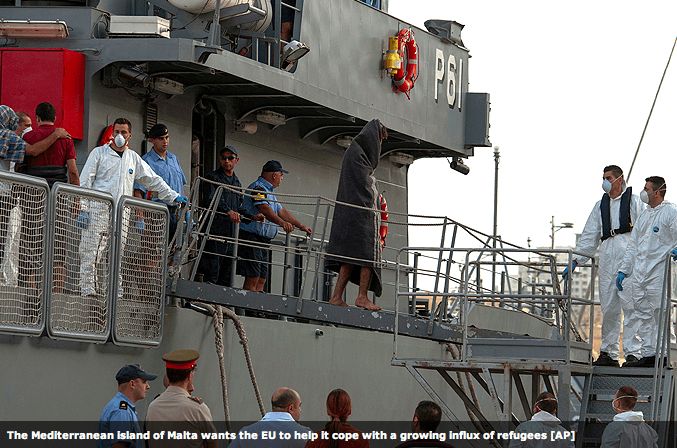 VALETTA (10 December 2014) – On International Human Rights Day, the United Nations Special Rapporteur on the human rights of migrants, Mr. François Crépeau, concluded a country visit to Malta where he called on Malta to stop the policy of mandatory detention of all migrants and asylum seekers that arrive at its borders.
VALETTA (10 December 2014) – On International Human Rights Day, the United Nations Special Rapporteur on the human rights of migrants, Mr. François Crépeau, concluded a country visit to Malta where he called on Malta to stop the policy of mandatory detention of all migrants and asylum seekers that arrive at its borders.
The visit to Malta from 6 to 10 December 2014 was a follow-up to his 2012 year-long study on the management of the external borders of the European Union. At the end of the mission, the UN Special Rapporteur shared his preliminary conclusions at a press conference, where he noted, “This year has seen an unprecedented number of migrants and asylum seekers arrive at Europe’s borders and today, International Human Rights Day, is an important occasion for us to remember that human rights do not only belong to Europeans. They belong to all of us, regardless of our nationality, immigration status or circumstances.”
The Special Rapporteur urged Malta to effectively apply a human rights-based approach to migrants and asylum seekers arriving and to develop a coherent and effective migration policy based on fundamental human rights principles.
“Migration cannot simply be seen as a border security operation. Over-reliance on border security – which focuses on policing, defense and criminality, instead of a rights-based approach – only serves to give a false sense of control over one’s borders.”
Calling particular attention to Malta’s policy of mandatory detention of irregular migrants and asylum seekers, the Special Rapporteur noted, “mandatory detention serves to inspire fear and distrust in the relationship between migrants, asylum seekers and the Maltese population.”
The Special Rapporteur stressed that under no circumstances should children be held in detention:
“Detaining children can never ever be in the best interests of a child and children and families with children should be hosted in open facilities with appropriate services. Additionally, detention should always be a measure of last resort and I strongly urge the government of Malta to develop non-custodial alternatives to detention for most migrants”.
Malta has taken steps towards that goal and should immediately strengthen this approach by enshrining this new policy initiative into law. Upon arrival, vulnerable people – such as women, unaccompanied children and families – are being quickly identified. However, the services and facilities that they are being offered must be appropriate to their particular vulnerabilities.
“Malta is showing promising signs of going in the right direction”, the expert said. “Several recent declarations show a political openness and will to ensure human rights for all in Malta and it should be translated into concrete legislation and programs. For example, Plans for the creation of a national human rights institution respecting the Paris principles and for the creation, of an integration unit which will focus on equality and non-discrimination for all, including for migrants, are excellent news, although still in need of implementation”.
Mr. Crépeau noted that Malta has a vibrant civil society and hosts international organisations specialised on migration policies. During his five-day country visit, the Special Rapporteur met with a range of Government officials, international organisations, civil society organisations and migrants themselves, to discuss the complex management of the common European border in Malta .
A country mission report and a thematic report on EU border management will be presented to the UN Human Rights Council in June 2015.
Resources:
Press Release: “Malta needs to step up its preparation for the next wave of migrants crossing the Mediterranean Sea” – UN expert
Country Reports: All country reports of the UN Special Rapporteur on the human rights of migrants
Thematic Report: Detention of migrants in an irregular situation
Thematic Report: Management of the external borders of the European Union and its impact on the human rights of migrants
News: Detention in Malta: Europe’s migrant prison